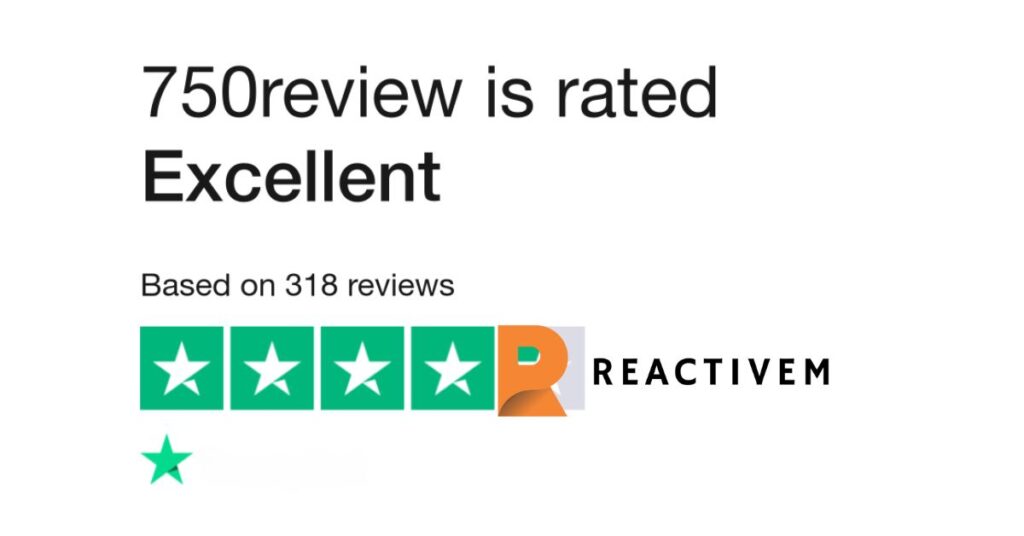As our reliance on the internet grows, so does the risk of falling victim to online scams. Phishing scams, in particular, have become a common threat, exploiting users by tricking them into sharing sensitive information. These scams come in many forms, but they all aim to deceive individuals into giving up personal details, often by offering something that seems too good to pass up. One such website, 750review.com, has been flagged as a phishing scam that lures users with enticing offers
While it may seem like a legitimate site at first glance, a deeper investigation reveals its true purpose: to steal your personal information. This article will explore how 750review.com operates, the warning signs of phishing scams, and how you can protect yourself from becoming a victim.
What Are Phishing Scams?
To understand the threat posed by 750review.com, it’s essential to know what phishing scams are and how they work. Phishing is a type of online scam where cybercriminals pose as legitimate entities to steal personal information, such as usernames, passwords, and credit card numbers. These scams can be delivered via email, text messages, or fake websites designed to look like reputable ones.
The success of a phishing scam often hinges on its ability to appear genuine. Scammers craft their messages and websites to mimic those of trusted companies or services, creating a false sense of security for the victim. Once the victim takes the bait, they are typically directed to a fake website or prompted to enter their personal details, which are then captured by the scammer.
The consequences of falling for a phishing scam can be severe. Victims may suffer financial loss, identity theft, and long-term damage to their credit. Despite increased awareness, phishing scams continue to evolve, becoming more sophisticated and harder to detect.
The Deceptive Tactics of 750review.com
750review.com is a textbook example of how phishing scams manipulate users by offering seemingly irresistible deals. The site claims to provide valuable rewards or discounts, tempting users to click on links, fill out forms, or provide personal information to claim these offers. However, as the saying goes, “If it seems too good to be true, it probably is.”
The website’s design is crafted to look legitimate, often mimicking the branding of well-known companies. Users might encounter offers like “Win a $750 Gift Card” or “Get a Free iPhone,” designed to create a sense of urgency and encourage quick action. These offers are engineered to bypass critical thinking, pushing users to provide their information without thoroughly vetting the site’s authenticity.
Once users click on the offer, they are typically directed to a form asking for personal details such as name, address, phone number, and credit card information. In some cases, the scam may even request social security numbers or account login details. The data collected is then used for malicious purposes, such as identity theft or unauthorized financial transactions.
Breaking Down the Anatomy of a Phishing Website
To understand how 750review.com operates, let’s analyze the key elements that make it an effective phishing scam.
- Alluring Offers and Promotions
The primary bait used by 750review.com is its seemingly generous offers. These offers, presented as limited-time deals or exclusive promotions, create a sense of urgency that drives users to act quickly. The site may claim to be affiliated with reputable brands, enhancing its perceived credibility. - Convincing Website Design
Phishing websites like 750review.com often invest in creating a convincing design to appear legitimate. They use high-quality images, familiar logos, and professional layouts that resemble those of actual websites. This level of detail is crucial in making users believe they are on a trustworthy site. - Spoofed URLs and Domain Names
A common tactic used by phishing websites is to spoof the URL or domain name to make it look similar to a legitimate site. For example, 750review.com might use a URL that closely mimics a well-known brand, with minor changes that are easy to overlook. This can easily deceive users who aren’t paying close attention. - Data Collection Forms
After convincing the user of the site’s legitimacy, the next step involves collecting personal information through forms. These forms are often designed to look official, requesting details that seem reasonable for the offer. However, any information entered into these forms is sent directly to the scammers. - Redirects and Fake Confirmations
Once users have provided their information, they may be redirected to another site or receive a confirmation message claiming their offer is being processed. In reality, the scammers have already obtained what they wanted, leaving the user vulnerable to further exploitation.
Check Also: MyLiberla.com
The Risks of Falling for Phishing Scams:750review .com
The repercussions of falling for a phishing scam like 750review.com can be dire. The immediate risk is the theft of personal information, which can lead to identity theft. Identity theft occurs when someone uses another person’s information to commit fraud, such as opening credit accounts, taking out loans, or making unauthorized purchases.
Victims of identity theft often face a long and challenging process to reclaim their identity and restore their credit. They may need to file reports with the authorities, contact credit bureaus, and work with financial institutions to resolve fraudulent transactions. In some cases, the impact can be long-lasting, affecting the victim’s ability to secure credit, employment, or even housing.
In addition to identity theft, phishing scam victims may also experience financial loss. Scammers may use the stolen information to make unauthorized purchases or withdraw funds from the victim’s accounts. Even if financial institutions cover the loss, the victim may face temporary hardships while waiting for the funds to be restored.
Another risk is the potential for further exploitation. Scammers often sell the stolen information on the dark web, where it can be used by other criminals for various illegal activities. Victims may find themselves targeted by additional scams, such as fake debt collection attempts or fraudulent offers for credit repair services.
Recognizing the Signs of Phishing Scams
To protect yourself from phishing scams like 750review.com, it’s important to recognize the warning signs of a fraudulent website or offer. Here are some red flags to look out for:
- Offers That Are Too Good to Be True
Phishing scams often lure victims with offers that seem unbelievably generous. If a website is promising something that seems unrealistic, it’s a good idea to approach it with caution. - Urgent Requests for Action
Scammers frequently use urgency and pressure tactics to push users into acting quickly without thinking. Be cautious of any website that insists you must act immediately to claim an offer, especially if it asks for personal information. - Suspicious URLs and Domain Names
Pay close attention to the website’s URL. If it contains misspellings, unusual characters, or seems different from the official domain of the brand it claims to represent, it may be a phishing site. - Requests for Unnecessary Personal Information
Be wary if a website asks for personal information that seems unnecessary for the offer. Legitimate sites typically only ask for essential details and will prioritize your privacy. - Poor Grammar and Spelling
While phishing websites have become more sophisticated, many still contain noticeable grammar and spelling errors. These mistakes can be a sign that the site is not legitimate. - Lack of Contact Information
Legitimate websites usually provide clear contact information, including a physical address, phone number, and customer service email. If a website lacks this information or provides fake contact details, it may be a scam.
How to Safeguard Against Phishing Scams:750review .com
Understanding the tactics used by phishing scams is the first step in protecting yourself. Here are some practical measures to help you avoid becoming a victim:
- Verify the Website’s Legitimacy
Before providing any personal information, take a moment to verify the website’s legitimacy. Check the URL, look for official contact information, and search for reviews or warnings from other users. - Use Strong, Unique Passwords
Use strong, unique passwords for all your online accounts, and avoid reusing the same password across multiple sites. Consider using a password manager to keep track of your passwords securely. - Enable Two-Factor Authentication
Enable two-factor authentication (2FA) on your online accounts whenever possible. 2FA adds an extra layer of security by requiring you to provide a second form of verification, such as a code sent to your phone, in addition to your password. - Keep Your Software Updated
Regularly update your operating system, web browser, and security software to protect against the latest threats. Many updates include patches for vulnerabilities that scammers may exploit. - Be Cautious with Emails and Links
Be wary of unsolicited emails or messages that contain links or attachments. Even if the email appears to be from a trusted source, it’s best to verify its authenticity before clicking on any links. - Monitor Your Accounts Regularly
Regularly monitor your bank accounts, credit card statements, and credit reports for any suspicious activity. If you notice any unauthorized transactions, report them immediately to your financial institution.
Conclusion:750review .com
750review.com serves as a stark reminder of the dangers lurking on the internet. While the promise of free rewards or exclusive deals can be tempting, it’s essential to approach such offers with caution. By understanding how phishing scams work and recognizing the warning signs, you can protect yourself from falling victim to these deceptive tactics.
Stay vigilant, verify the legitimacy of websites before providing personal information, and take proactive steps to safeguard your online security. In doing so, you can avoid the pitfalls of phishing scams and keep your personal information out of the hands of cybercriminals







